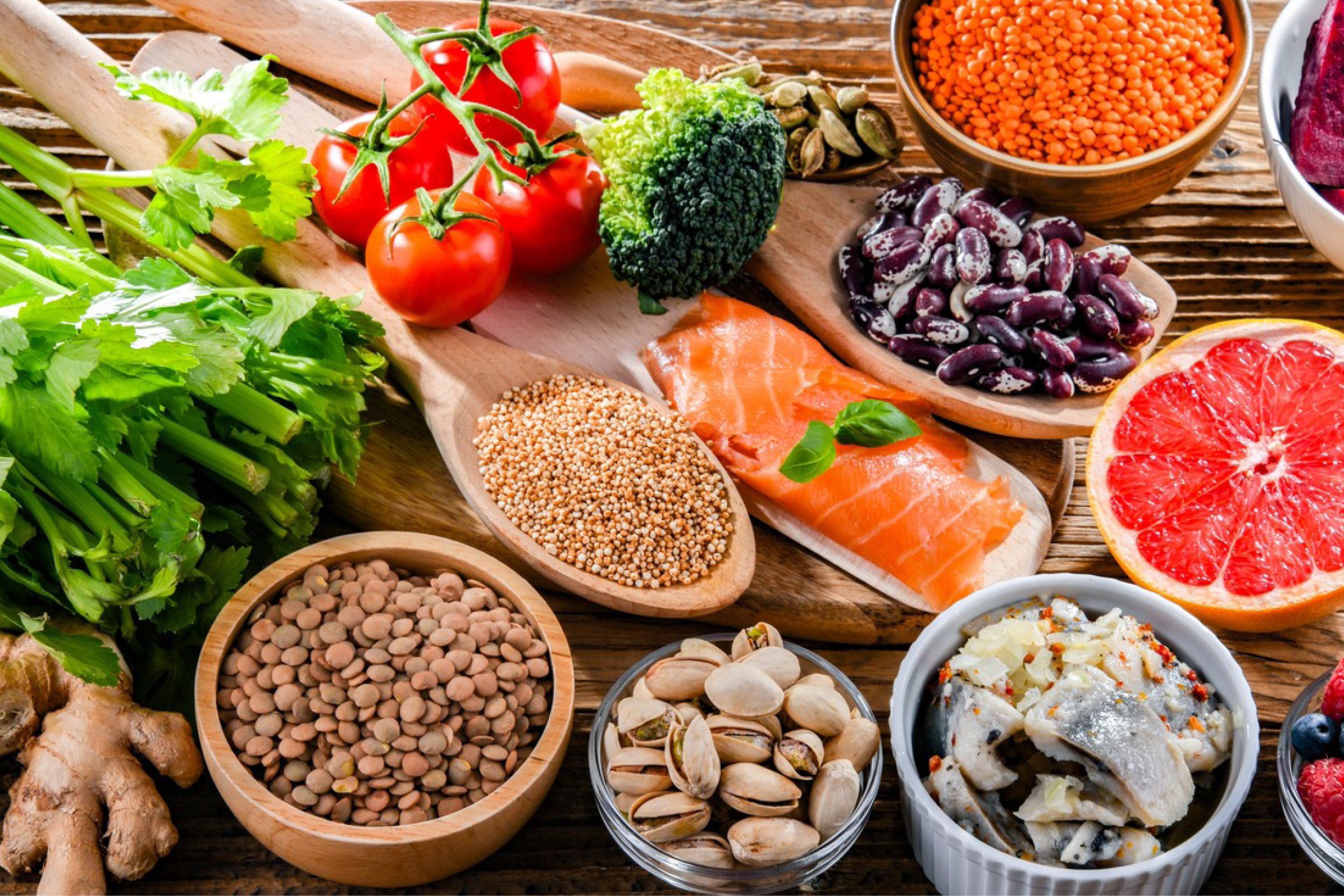The DASH diet, which stands for “Dietary Approaches to Stop Hypertension,” is an eating plan designed to prevent or treat high blood pressure, also called hypertension. It is known to help lower cholesterol, also linked to heart disease and stroke.
The DASH diet focuses on consumption of vegetables, fruits, and whole grains that are rich in minerals such as potassium, calcium, and magnesium. It includes fat-free or low-fat dairy products, fish, poultry, beans, nuts, seeds, and vegetable oils. The DASH diet does not require any specific foods; instead, it provides daily and weekly nutritional goals.
Here is a look at the recommended servings from each food group for a 2,000-calorie-a-day DASH diet:
- Grains: 6 to 8 servings/day. One serving may be 1/2 cup of cooked cereal, rice, or pasta, 1 slice of bread or 1 oz dry cereal.
- Vegetables: 4 to 5 servings/day. One serving is 1 cup raw leafy green vegetable, 1/2 cup cut-up raw or cooked vegetables, or 1/2 cup vegetable juice.
- Fruits: 4 to 5 servings/day. One serving is one medium fruit, 1/2 cup fresh, frozen or canned fruit, or 1/2 cup fruit juice.
- Fat-free or low-fat dairy products: 2 to 3 servings/day. One serving is 1 cup milk or yogurt, or 1 1/2 oz cheese.
- Lean meats, poultry and fish: six servings or fewer/day. One serving is 1 oz of cooked meat, poultry or fish, or 1 egg.
- Nuts, seeds, or dry beans and peas: 4 to 5 servings/week. One serving is 1/3 cup nuts, 2 tbsp peanut butter or seeds, or 1/2 cup cooked legumes (dried beans or peas).
- Fats and oils: 2 to 3 servings/day. One serving is 1 tsp soft margarine or vegetable oil, 1 tbsp mayonnaise or 2 tbsp salad dressing.
- Sweets and added sugars: 5 servings or fewer a week. One serving is 1 tbsp sugar, jelly, or jam, 1/2 cup sorbet or 1 cup lemonade.
The DASH diet limits salt (sodium), added sugars (such as sugar sweetened beverages), and saturated fats (such as fatty meats, full-fat dairy products, and tropical oils i.e. coconut, palm kernel, and palm oils). The standard DASH diet limits salt to 2,300mg a day, equivalent to approximately 1 teaspoon of table salt. The lower sodium DASH diet limits salt to 1,500mg a day. You can choose the version of the diet that meets your health needs.
In order to reduce your salt intake, DASH suggests reading food labels and selecting low-salt or no-salt-added options. The DASH diet also recommends using salt-free spices and flavorings, as well as choosing fresh or frozen vegetables instead of pre-seasoned ones. Limit your restaurant food – if you do choose to eat out or get food delivered, ask for dishes with less salt and ask not to have salt added to your order.
Since drinking alcohol can increase blood pressure, the DASH diet also recommends limiting alcohol to no more than two drinks per day for men (assigned male at birth) and no more than one drink per day for women (assigned female at birth).
Seasoning Blend
Here’s a blend of seasonings you can use instead of salt when trying to cut back on sodium.
Ingredients
5 teaspoons onion powder
3 teaspoons garlic powder
2½ teaspoons paprika
2 teaspoon dry mustard
1½ teaspoon crushed thyme leaves
½ teaspoon white pepper
¼ teaspoon celery seed

